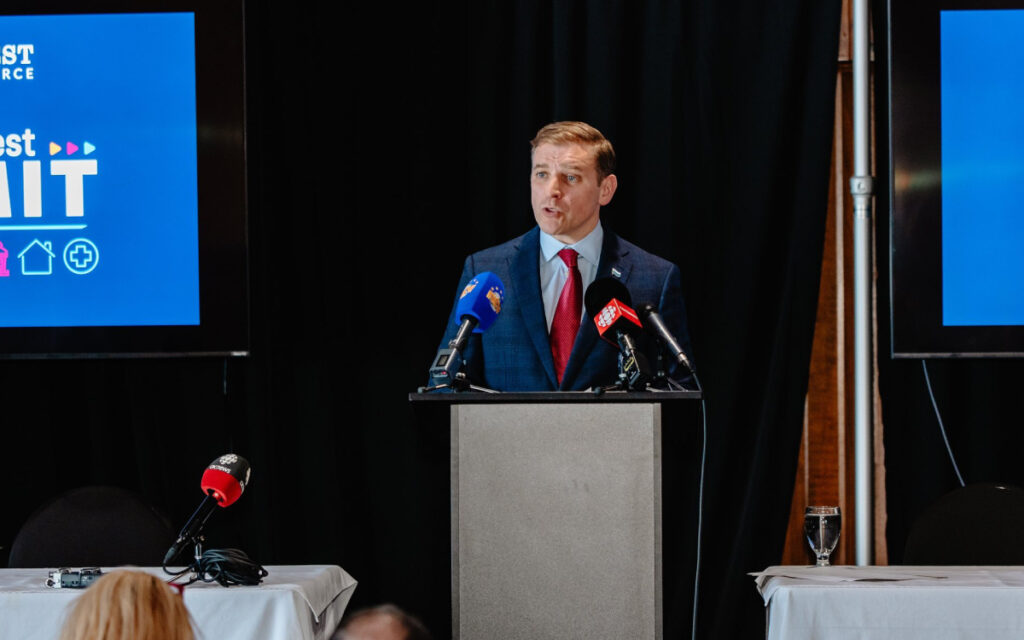
Overall, Newfoundland and Labrador’s 2024 budget is good news for taxpayers. It focuses on lowering taxes, trimming the deficit and setting the province up well for the future. Photo Credit: Andrew Furey/X.
Newfoundland and Labrador Finance Minister Siobhán Coady presented a budget that includes another year of gas tax relief, a cut to the province’s small business tax rate and a plan to balance the budget in 2025.
Let’s examine those three bright spots.
First: gas tax relief.
Premier Andrew Furey cut the provincial gas tax by 8.05 cents per litre in June 2022. Since then, the average two-car Newfoundland and Labrador family has saved roughly $10 a week at the pumps. Over 21 months, that’s more than $800 in the pockets of families, instead of government coffers.
Without action from the provincial government, gas taxes would have gone up April 1. Thanks to Budget 2024, Newfoundlanders and Labradorians can rest assured provincial gas taxes will not go up for at least another year.
That’s especially important at a time when Prime Minister Justin Trudeau plans to hike the federal carbon tax just days from now, which will increase prices at the pumps by over three cents per litre.
Second: small business tax relief.
The Furey government cut small business taxes to deal with Newfoundland and Labrador’s lack of competitiveness. Along with Ontario, Newfoundland and Labrador had the highest small business tax rate, coming in at three per cent.
Coady announced a major change by slashing small business taxes to 2.5 per cent, which brings the province in line with neighbouring Nova Scotia and New Brunswick.
Lowering taxes to help small businesses thrive means more jobs and a growing economy. Ensuring Newfoundland and Labrador is competitive with nearby provinces is an important step towards improving the province’s economy.
Third: balanced budget plans.
Budget 2024 was not without its disappointments. Furey and Coady initially announced last year that they planned to balance Newfoundland and Labrador’s books this year. Unfortunately, the government expects to run a deficit of $152 million.
That deficit is fuelled by debt interest charges of more than $700 million on the province’s $17.1 billion debt.
While Budget 2024 was not balanced, it does chart a course for more sustainable provincial finances over the long term. Coady is projecting surpluses for the foreseeable future, including a $58 million surplus in 2025-26.
But for the government to maintain credibility with Newfoundland and Labrador taxpayers, Coady cannot go back on her word and fail to balance the budget in 2025. Balanced budget plans are only credible when governments establish a track record of meeting them.
Given that Coady already pushed back balancing the budget by one year, her credibility rests on not pulling a similar move next spring.
Still, this year’s deficit is expected to be $300 million smaller than last year’s, so the budget is headed in the right direction.
Finally, the Furey government does deserve some credit for holding spending down near the rate of inflation.
Canada’s inflation rate in 2023 was 3.9 per cent. The Furey government’s 2024 budget limits spending growth to 4.6 per cent, while revenue is expected to rise by 7.2 per cent. In other words, revenue growth is outpacing the growth of expenses, which is how Coady plans to shrink and ultimately eliminate the deficit.
Spending growth of 4.6 per cent isn’t exactly a clearcut example of spending restraint. But at a time when provinces like Quebec and British Columbia are running their highest deficits on record, the Furey government’s approach to spending is far more modest.
Overall, Newfoundland and Labrador’s 2024 budget is good news for taxpayers. It focuses on lowering taxes, trimming the deficit and setting the province up well for the future.

Jay Goldberg is the Ontario Director at the Canadian Taxpayers Federation. He previously served as a policy fellow at the Munk School of Public Policy and Global Affairs. Jay holds a Ph.D. in Political Science from the University of Toronto.




















